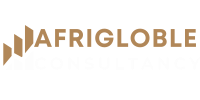A Curriculum Vitae (CV) is a summary of your academic and work history, skills, and achievements. It is often the first impression you make on a potential employer, so in today’s competitive job market, creating a resume that is well-crafted is essential to stand out from the crowd.
In this article, we will discuss how to build a resume and tips for writing a good CV that will assist you in effectively marketing yourself and landing the job you desire.
Best CV Writing Tips: A Guide for Job Hunters
Ready to take your CV to the next level? Check out the best CV writing tips that are sure to learn how to make your resume stand out in the crowd and catch the eye of recruiters!
Tailor your resume to the job you’re applying for
One of the most important cv tips for making a good cv is to tailor it to the job you’re applying for. This means highlighting the skills and experiences that are most relevant to the job and showing how you’re a good fit for the role.
Use a clear and simple format
The format of your CV is also important. Stick to a simple font and layout and use headings and subheadings to break up the text. Use a professional-looking template that is easy to read and looks good both on screen and in print.
Add Your Contact Information and Personal Details
The first thing to include in a resume is your contact information and personal details in a clear and professional manner. This information should be placed at the top of the resume and should include your full name, address, phone number, and email address.
Keep it concise
Employers receive many CVs for each job opening, so it’s important to keep your CV concise and easy to read. Aim for a maximum of two pages and use bullet points to make your CV easy to scan. Use clear, concise language, and avoid unnecessary details or jargon.
Include your education and work experience
List your education and work experience in reverse chronological order, starting with your most recent experiences. When including your education, be sure to include the name of the institution, the degree or qualification earned, and the date of graduation.
Highlight your achievements
When describing your work experience, don’t just list your job duties – focus on your achievements and the impact you made in your previous roles. Show how you added value to the company and how you made a difference.
Include relevant skills and portfolio or references
List skills relevant to the job you’re applying for, such as software or language proficiency. Include a portfolio of your work or a list of references to provide additional information about your qualifications.
Proofread and edit
Before submitting your CV, make sure to proofread and edit it carefully. Typos and errors can make a bad impression and undermine your credibility, so take the time to review your CV carefully and make any necessary corrections.


